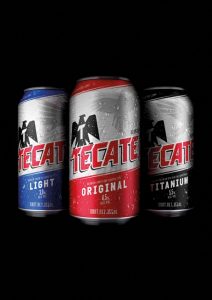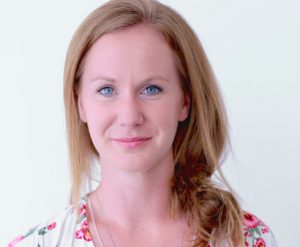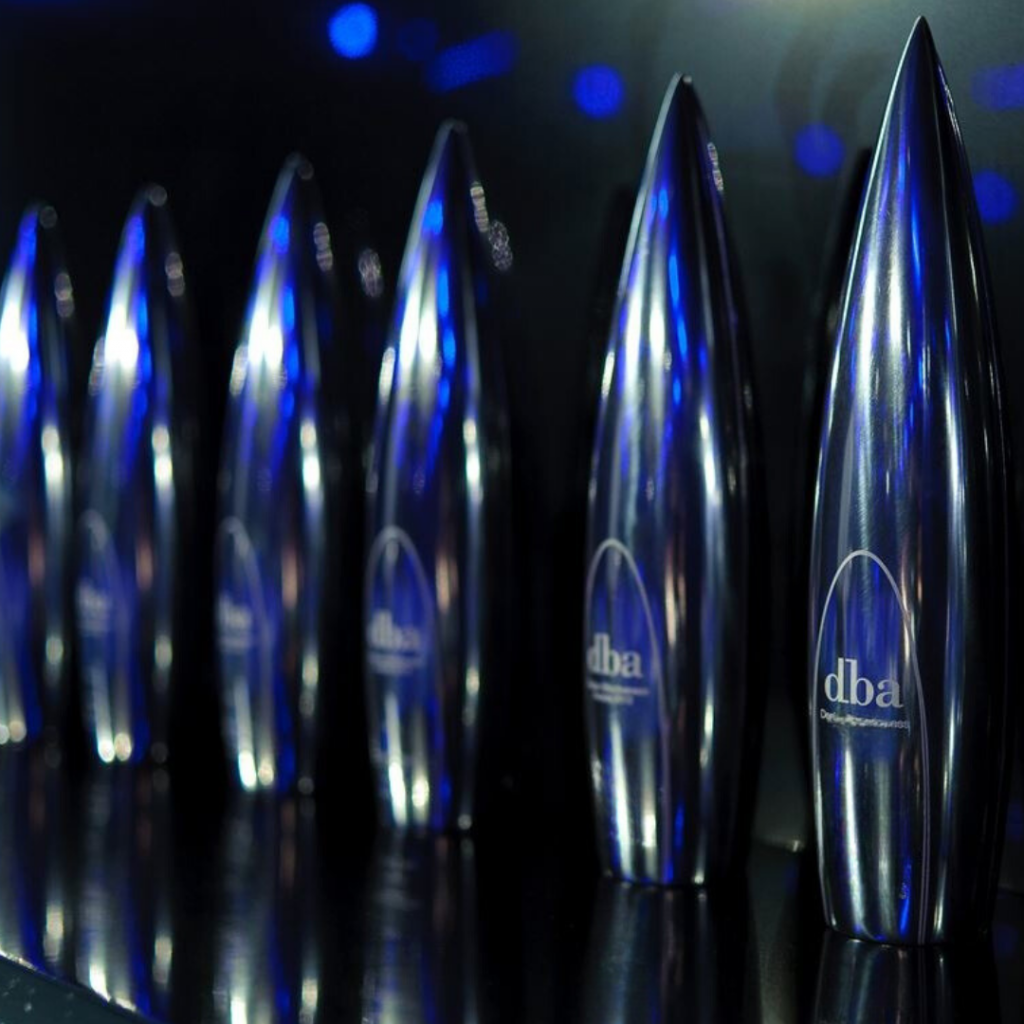
DBA Roundup
A roundup of industry expertise, exclusive resources, business support and tools for your design business.
 Provocation’s central ethos actually comes from the Sci Fi writer Jean Vinge who wrote “Indifference is the enemy, it makes everything it touches meaningless”. In a world where consumers are bombarded with brands 24 hours a day, this couldn’t be more pertinent. For a brand to be noticed, it needs to be remarkable. And for us, Provocation is a central part of this. You can’t ignore Provocation, and that’s a start! Provocation is a strategic approach to branding that ensures creative cuts through and is effective as possible.
Provocation’s central ethos actually comes from the Sci Fi writer Jean Vinge who wrote “Indifference is the enemy, it makes everything it touches meaningless”. In a world where consumers are bombarded with brands 24 hours a day, this couldn’t be more pertinent. For a brand to be noticed, it needs to be remarkable. And for us, Provocation is a central part of this. You can’t ignore Provocation, and that’s a start! Provocation is a strategic approach to branding that ensures creative cuts through and is effective as possible.
There’s a statistic that says consumers wouldn’t mind if 80% of the brands they use disappeared from their lives tomorrow. Whether we’d like to admit it or not, most of us will work on the everyday brands that fall into that 80%. Laundry detergent, toilet roll, shampoo… We invest so much of our time and energy into these brands, so for that to be worthwhile it’s our responsibility to jolt consumers out of the indifference they may feel towards these brands.
At Elmwood, we always strive to look beyond our collective worldview, and Provocation is a central part of this. It’s the Prov team’s responsibility to Poke, Stoke and Provoke our clients, and each other, to think differently, get out of our comfort zones and look to the wider world for inspiration. Provocation can come from anywhere, and when it’s harnessed and translated into brilliant creative, we can hope to go someway towards remarkable.

A great example of Provocation in action is the work we did for Mexican beer brand Tecate. Tecate’s goal was to re-define modern masculinity in Mexico.
Sitting in London, it would have been naive of us to make assumptions on what it means to be a young man in Mexico today. So we got on a plane and got out there with them.
We spent time immersed in their world and their lives. The provocation they gave us, and the invaluable insight we gained was central to the success of the project. We were able to create a strategic approach that defined the huge opportunity for Tecate in Mexico, and the creative has been incredibly successful for the brand.
 PDD is a multi-disciplinary design and innovation consultancy, with expertise ranging from research through to design and engineering.
PDD is a multi-disciplinary design and innovation consultancy, with expertise ranging from research through to design and engineering.
At the core of PDD is our Human Sciences ethos, founded on the principles of Human-Centred Design. By keeping the consumer at the centre of the design process we uncover and understand unmet needs, as well as unarticulated frustrations that inspire concept designs, deliver feedback on the most compelling solutions and act as a springboard for innovation.
A macro to micro process allows us to frame the problem in the context of the customer, category and market to qualify the opportunities, understand risk and explore out of category influences on customer behaviour.

As a Senior Consultant spanning the Human Factors and Research disciplines in the PDD Human Sciences team, I am involved in exploring how people interact with products, services, environments and the people around them to identify opportunities and solutions grounded in consumer reality.
My role ranges from exploratory ethnographic research with lead users in emerging markets, to formative and summative evaluations of medical and pharma products.
Formative aims to understand user behaviour by observation from the point of view of the subject of the study, in order to form an unbiased and comprehensive understanding of users, environments and potential coping mechanisms. By doing this, we can uncover unforeseen opportunities for innovation and development.
 Summative aims to understand the cognitive, physical and emotional challenges involved in the use of a medical device or system in order to ensure compatibility with the needs, abilities and limitations of intended users. By doing this, we recognise and minimise potential risk to users and simultaneously we ensure our clients reach quality assurance requirements.
Summative aims to understand the cognitive, physical and emotional challenges involved in the use of a medical device or system in order to ensure compatibility with the needs, abilities and limitations of intended users. By doing this, we recognise and minimise potential risk to users and simultaneously we ensure our clients reach quality assurance requirements.










 “If you are losing business on price, it is not because you are not cheap enough, it is because you are not good enough.”
“If you are losing business on price, it is not because you are not cheap enough, it is because you are not good enough.”Harsh but true. There is an over supply issue in the design sector at what is called ‘the bottom end’ where there is little to distinguish one agency from another. As far as a client is concerned they can get what these agencies are offering elsewhere at the same standard or better, at an even cheaper price.
Blair’s advice for agencies finding themselves in this situation: instead of cutting your price, focus on improving your offer.
Having the confidence to drive a profitable relationship with a client comes from one of two sources:
1) A deeply held belief in your abilities. ‘We are the best at what we do’
2) Having more options eg a full sales pipeline, having reserves in the bank – options that mean you are not always desperate to grab the first client that comes along.
Either way you are in a better bargaining position when a new client comes along.
 “An inability to talk about money is seen as a lack of business acumen.”
“An inability to talk about money is seen as a lack of business acumen.”When talking about money you have to have the discussion up front. Losing a “sale” early is a good thing if it was not going to be a profitable client. It saves you the time that you would have put into the relationship only to find out further down the line that the budget is tiny or their expectations unreasonable.
Writing to fill space is content – it is not necessarily insight. David describes much of what he sees published by agencies as “thoughtish” or ‘kind of thoughtful, but not quite’. To write insight you need to create unique, deeply thought through insight to illustrate the expertise you have in the field – otherwise it is just ‘thoughtish’.
 “Hiring your first ‘expensive staff member’ typically doesn’t work out first time.”
“Hiring your first ‘expensive staff member’ typically doesn’t work out first time.”It takes time to build a great team. Too many agency owners become dependent on their first ‘expensive hire’ even when they are no longer right for the business. The fear of losing someone important paralyses them into doing nothing when really they should be looking for someone new.
You can read more from David on how to improve the likelihood of it working out here.
David claims that not being able to position your agency in the marketplace so that you are differentiated from your competitors illustrates that you are not an ‘expert’ and will therefore always be competing on price. You need to price your work so that you have time available to work ON the business – to develop and articulate thought leadership, to continually develop the positioning of you and your agency as an expert.
We can all gain from listening to a diverse range of stories and discussions for inspiration. What are your favourite podcasts? Please let me know at adam@dba.org.uk – I would love to start a list of recommended podcasts for DBA members.
Image credit: © William Iven | Unsplash Image credit: © Jeremy Bishop | Unsplash
Image credit: © Jay Castor | Unsplash Image credits: © Jozef Micic | Dreamstime.com









